Consistent Life Ethic

The Obama administration on Friday issued final rules for religious groups for its controversial contraception mandate, maintaining its position on who qualifies for religious exemption and allowing no carve-outs for private business owners.
More than 60 lawsuits have been filed over the mandate, a part of President Obama’s Affordable Care Act that requires most employers to provide contraception at no cost to employees.
Just as when the draft rules were first unveiled in February, conservatives denounced them as an unconstitutional violation of religious freedom that forces religious organizations and the religious owners of private businesses to offer services they find morally abhorrent.
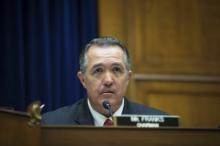
As the House debates a bill to limit abortion, Republicans are reopening a subject that cost them dearly in 2012 and continues to present perils for the party’s attempt to appeal to women voters.
Even before the full House took up the bill Tuesday to ban abortion after 20 weeks of pregnancy, Republicans had a sharp reminder of how sensitive the issue can be when Rep. Trent Franks, R-Ariz., appeared to say that rape rarely results in pregnancy.
“The incidence of rape resulting in pregnancy [is] very low,” Franks said at a June 12 committee hearing on the bill. Franks later said he meant that third-trimester abortions of pregnancies caused by rape are rare.

Now that the trial for abortion provider Kermit Gosnell has ended with a conviction, many are asking what public officials in Philadelphia plan to do with the 47 bodies from the case.
After Gosnell’s arrest in 2011, then-Archbishop Cardinal Justin Rigali asked the district attorney’s office for the bodies of the aborted fetuses. The bodies were being retained for the trial, but after it ended and Gosnell was sentenced to life in prison, his successor, Archbishop Charles Chaput, has renewed the request to bury the bodies.
Francis Maier, special assistant to Chaput, said that he doesn’t know whether or not a service would include a Catholic Mass, but he said it would be quiet and dignified.

As we go through life, most of us manage to acquire some small measure of expertise about daily living. In general, the more times we’ve had to undertake a task, the better we get at it.
Yet in this one area, we are all fumbling newbies, approaching every funeral as if it were our first. We think about what we could possibly say at the funeral home, or what we’ll write on the Facebook tribute page — and words fail us.
I’ve gradually learned to fight the urge to try to make those in pain feel better.
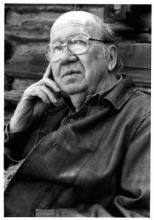
The Rev. Will D. Campbell, a Baptist minister and early white civil rights activist, as well as best-selling writer and folksy raconteur, died Monday in Nashville, Tenn. He was 88.
With a fiercely independent streak and sometimes prickly personality, Campbell used his powerful way with words to explore American racism, especially the contradiction inherent in Christian support for segregation across the South.
And he had his own contradictions, as well. A Southern Baptist who drank moonshine with the Catholic nuns he counted as his friends, Campbell was an equal-opportunity critic, castigating liberals as well as conservatives in his writing and preaching and storytelling.

Jesus flips things upside down. DC 127 plans to follow suit.
The Washington, D.C.-based foster care initiative created by the District Church seeks to reverse the foster care waitlist in our nation’s capital, leaving parents waiting to foster the 3,000 children currently on the list instead of children waiting to be taken in by families.
“The heart behind DC 127 is to reflect God’s heart,” said District Church Lead Pastor Aaron Graham. “We believe there are no orphans in heaven. And Jesus taught us to pray, ‘your kingdom come, your will be done on earth as it is in heaven.’ And so our prayer is that we would reflect God’s heart, who’s adopted us, by helping adopt and foster kids in D.C.”

I first became aware of the realities of sexual abuse in the church at the tender age of five. I happened to look at the television screen and witnessed police officers escorting my hand-cuffed youth minister in front of a crowd of reporters screaming questions. The words “YOUTH PASTOR ABUSED CHILDREN” flashed across the television screen.
I was confused and scared. My family comforted and assured me that the pastor had only “hurt” teenage boys and that I was safe. The church hired a new minister and, on the surface, life seemed to resume to normal for our congregation. But as a child I had no idea of the effects of the abuse and its aftermath had on the survivors, their families, and our church community. Many families soon experienced disintegrating marriages, friendships were broken, and faith was lost. One survivor’s family had their home repeatedly vandalized and were forced to move hundreds of miles from our town to escape fellow believers who grew angry with them for filing a lawsuit against the perpetrator.
Church leaders shunned media attention and feared “airing dirty laundry” in public, encouraging members to keep the experience a secret for the sake of the boys and church. As a child, and then a teenager, growing up in an otherwise loving, connected church, I never remember hearing church leaders address this aspect of our shared history in the open. To some of the survivors and the broken-hearted, the silence on this topic was welcome; to others it was deafening. While secrecy was the rule, the legacy of the abuse was real and active in the community. Rather than being cared for with dignity and love, the survivors and their families felt that they were a shameful secret to be whispered about and hidden. I learned as an adult that I was intimately connected with some of the survivors but never knew about their silent pain. I had no idea that I was a participant in a culture of silence and shame that often surrounds sexual abuse and is especially pronounced when boys are abused by men in the church.

On April 5-12, the University of Tennessee hosted “Sex Week,” organized by the student organization Sexual Empowerment and Awareness in Tennessee. The week’s activities, ranging from discussions on virginity to workshops on oral sex and a search for a golden condom, sparked the concern of easily provoked and immensely quotable State Rep. Stacey Campfield (he of “Don’t Say Gay” bill fame).
With apologies to Campfield’s ever-vigilant protection of Christian sensibilities, the real problem here is not that mandatory student fees are being used to promote sexual education and awareness. The problem is that our tithes aren’t.
Imagine with me, if you will, what would happen if “Sex Week” came to First Baptist Church . . .
If local congregations joined together to dedicate a week to the promotion and exploration of Christian ethics expressed through sexuality, gender, and embodiment, what might the offerings look like? Perhaps these would be a good start.

News that scientists had for the first time recovered stem cells from cloned human embryos prompted dire warnings from religious leaders who say the research crosses a moral red line and could lead to designer babies.
Boston Cardinal Sean O’Malley, point man for the U.S. Catholic bishops on bioethical issues, said Wednesday that “this means of making embryos for research will be taken up by those who want to produce cloned children as ‘copies’ of other people.”
Human cloning “treats human beings as products,” O’Malley said on behalf of the bishops, “manufactured to order to suit other people’s wishes. … A technical advance in human cloning is not progress for humanity but its opposite.”
A Philadelphia abortion doctor convicted of first-degree murder in the deaths of three babies will not face the death penalty.
Dr. Kermit Gosnell will serve life in prison without parole. He escaped the possibility of execution by agreeing Tuesday to waive his right to appeal his conviction of first-degree murder in the deaths of three babies. A jury on Monday found they were delivered alive and killed by snipping their spinal cords with surgical scissors.
During his trial, former employees of Gosnell’s rundown west Philadelphia clinic testified that he performed or tried to perform abortions beyond Pennsylvania’s 24-week gestation limit. Some procedures resulted in the birth of babies who appeared to be moving, breathing, and in one case, according to former employee Ashley Baldwin, “screeching.”

On Tuesday, Angelina Jolie became the face of preventative mastectomy. In a beautifully worded New York Times op-ed, the actress said she opted for a double mastectomy after learning she had an 87 percent risk of breast cancer, adding, “On a personal note, I do not feel any less of a woman. I feel empowered that I made a strong choice that in no way diminishes my femininity.”
In the hours following the publication of Jolie’s story, others came forward with their own stories, and the media coverage since has been non-stop. However, when a similarly famous actress, Catherine Zeta Jones, came forward with her diagnosis of bipolar II disorder, it made only a news ripple compared to the crashing wave of coverage Jolie’s disclosure has received. Don’t get me wrong — Jolie’s announcement is hugely significant and part of a much-needed conversation. But mental illness should be afforded the same level of discourse. Perhaps talking about mental illness isn’t as fascinating as talking about an actress’s decision about her breasts, but talk about it we must — and unfortunately not even a courageous disclosure made by a beautiful and famous actress like Catherine Zeta Jones is enough to get that conversation started.
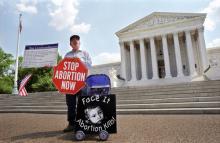
Even before rogue abortionist Kermit Gosnell was convicted in Philadelphia on Monday of delivering and then killing late-term infants, abortion opponents were convinced they had a case that could reshape an abortion debate that has remained static over the years.
After the verdict, they were even more confident.
“Dr. Gosnell is only the front man; and the real trial has only just begun. The defendant is the abortion license in America,” Robert P. George, a Princeton law professor and leading conservative activist, wrote after a jury convicted Gosnell of three counts of first-degree murder for snipping the spines of babies after botched abortions.
Gosnell, who could face the death penalty, was also found guilty of involuntary manslaughter in the death of a 41-year-old patient who sought an abortion at the squalid West Philadelphia clinic that prosecutors labeled a “house of horrors.”
Yet the fervent prayers for a game-changing impact from the Gosnell conviction may go unanswered for a variety of reasons.

American anti-abortion leaders will be in Rome on Sunday to participate in Italy’s third March for Life and lend their expertise to the nation’s small anti-abortion movement as it tries to learn from its American counterpart.
Jeanne Monahan, president of the March for Life Education and Defense Fund, and Lila Rose of Live Action will be among those who will march through central Rome on Sunday morning, from the Colosseum up to Castel Sant’Angelo, a few hundred meters from the Vatican.
While the annual March for Life in Washington — which celebrated its 40th anniversary in January — attracts hundreds of thousands of people and heavy media coverage, in Europe anti-abortion movements have often kept a lower profile and haven’t been able to shape social discourse as in the United States.
Polls regularly show high levels of support for abortion rights throughout Europe. A January poll by Eurispes found that 64 percent of Italians favor legalizing abortion pills.
In Italy, abortion is currently legal in hospitals up to the third month of pregnancy.

A new poll finds overwhelming support for assisted suicide for the terminally ill among Anglicans, Catholics, Hindus, Sikhs and Jews in Britain, with Baptists and Muslims the only groups that oppose changes to British law, which currently prohibits assisted suicide.
But Britons are debating the topic intensely.
More than seven-in-ten (72 percent) members of the established Church of England and 56 percent of Roman Catholics support assisted suicide for the terminally ill, the survey shows.

The recent explosions at the Boston Marathon and subsequent media coverage exposed yet again a dangerous trend in U.S. culture: rushing to judgment in labeling and prosecuting crimes, and throwing away long-held U.S. American ideals and legal principles of due process.
Terrorism — a form of communication and a military tactic, not an ideology — is the systematic use of violence against civilians to intimidate them for a political purpose. Too many media outlets, elected officials, and community leaders have prematurely labeled the Boston Marathon bombing an act of terrorism. Some people were upset President Obama did not label the acts "terrorism" in his address just hours after the explosions.
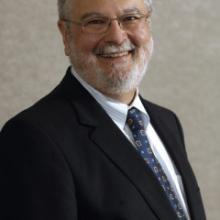
Conservative and liberal religious leaders may not agree on much, but both are expressing displeasure with the Boy Scouts’ proposal to accept gay members but reject gay leaders.
The Boy Scouts of America released its draft proposal on April 19 that will be voted on at its annual meeting in May.
“No youth may be denied membership in the Boy Scouts of America on the basis of sexual orientation or preference alone,” reads the proposed resolution, which also notes that the Scouts “will maintain the current membership policy for all adult leaders of the Boy Scouts of America.”

Wading into one of the most controversial fields of modern medicine, the Vatican is pushing adult stem cell research as ethical and scientifically more promising than embryonic stem cell research.
That’s despite assertions from many in the scientific community that that it’s important to pursue all types of stem cell research, including embryonic, to maximize chances of finding cures for diseases.
Harvesting embryonic stem cells requires the destruction of fertilized embryos — which are considered nascent human life in Catholic doctrine. Adult stem cells can be safely taken from adult human beings.
The Vatican started promoting adult stem cells in 2011, when its Pontifical Council for Culture launched a collaboration with U.S. bio-pharmaceutical company NeoStem.
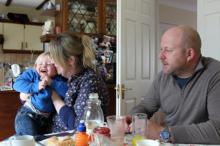
DUBLIN, Ireland — Ruth Bowie was in the throes of grief when she found out she would never know her unborn child. At the 12-week mark, a pregnancy scan showed the baby had anencephaly, a fatal condition in which a portion of the brain and skull never form.
Bowie, 34, a pediatric nurse, knew the implications of the birth defect even before the doctor explained. But the life-changing news didn’t stop there.
“The doctors said we will continue to look after you, or else you can choose to travel,” she recalled.
Put another way, if she and her husband wanted to seek an abortion, they would have to travel to England to end the pregnancy.
JIM BALMER, president of an addiction-recovery center called Dawn Farm in Ypsilanti, Michigan, has been an antiwar activist since the Vietnam days. His engagement with nonviolence has taken him to some unexpected places, from the antiabortion group Operation Rescue to working with addicts. Sojourners associate editor Elizabeth Palmberg interviewed Balmer early last year at the Consistent Life conference in Washington, D.C.
Elizabeth Palmberg: What was your work for peace during the Vietnam war?
Jim Balmer: I had been part of Detroit-area draft resistance. I went through almost all the conscientious objector status [process]. And it was 1970—what can I tell you? I was under the influence of substances one night, and I wrote the draft board in Pontiac, Michigan, and told them off; I just said, "come and get me." They never did. I suspect that, as the '70s progressed, they got more and more tired of putting us in jail.
The Detroit-Ann Arbor area was a hub for political activism. Students for a Democratic Society was founded there. YPFJ—Youth for Peace, Freedom, and Justice—there were all sorts of organizations. We would protest. The first time I got actually picked up was at a George Wallace rally—Wallace was a terrible, racist candidate from Alabama.
I started being interested in nonviolence. I was reading Mohandas Gandhi and Martin Luther King Jr., and I took King's nonviolence pledge when I was in high school.
BETWEEN 2008 and 2009, the Centers for Disease Control reported in November, the U.S. abortion rate fell 5 percent, down to the lowest point that decade. This new data is drawing the attention of people of faith whose thinking about unwanted pregnancies has become more nuanced—both in how to prevent them and what to do when they occur.
Why did the rate drop? It's not a matter of people being more cautious about becoming pregnant due to the recession; along with the overall decline, the number of abortions per 1,000 live births also dropped. But it might be linked to the fact that use of long-acting contraceptives such as IUDs, which tend to be more effective than other methods, more than doubled from 2007 to 2009, according to a national survey.
In recent years, as evangelical activism has broadened, economic justice, creation care, and immigration reform have been at the forefront of the change—but abortion hasn't. Of evangelicals, 61 percent believe abortion should be illegal in all or most cases, while 33 percent say it should be legal; 84 percent of evangelicals ages 18 to 30 say they would not consider abortion if faced with an unexpected pregnancy.
While 77 percent of those young evangelicals find premarital sex unacceptable, they are also aware of facts on the ground, perhaps because they think seriously about human fallenness. Eighty-two percent, perhaps with the awareness that more-effective birth control would reduce abortion rates further, hold that those having "sex outside of marriage should use contraceptives to prevent pregnancy." (An increasing number of Catholics hold similar views, despite current church teaching.)